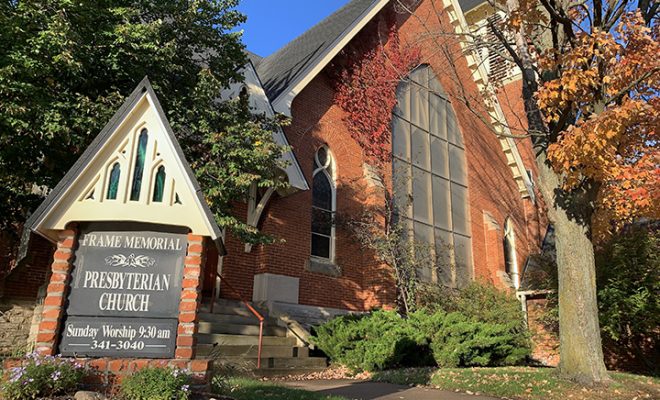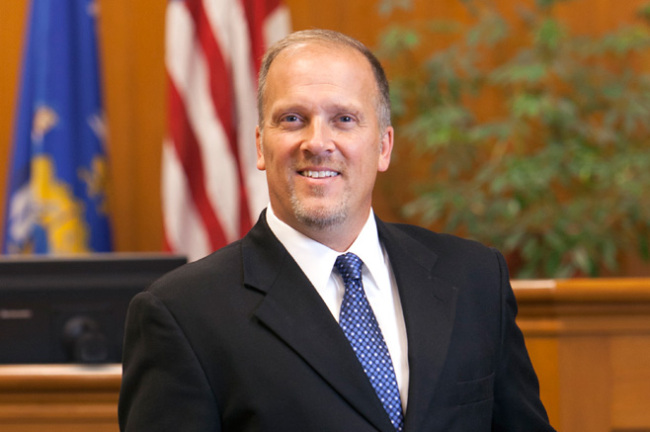Homelessness in central Wisconsin

By Taylor J. Hale/Kris Leonhardt
MMC staff
CENTRAL WISCONSIN – It’s been said that a community can be judged by how it treats its most vulnerable population. While some communities might be reluctant to address these issues, others rally around the needs of those who have fallen on hard times.
In some of our central Wisconsin communities, homelessness is barely visible, while in others the plight may be witnessed on a daily basis. In Wood and Portage counties, multiple organizations are working to assist those in need of food and shelter, and their numbers show that the need is present all over the central Wisconsin region.
“Last year we served 64 homeless in Stevens Point,” said Tiffani Krueger, a founding member of the Evergreen Community Initiatives. “Most of the people that we work with suffer from mental health issues, disabilities, or a drug or alcohol problem.”
The group spearheads the Warming Center and a children’s clothing pantry in Stevens Point. The shelter is located inside the Frame Memorial Presbyterian Church, 1300 Main St., Stevens Point, and is open from Nov. 1 to spring, to protect the unsheltered population from the harsh winter months.
According to the Wisconsin Family Impact Seminars program report, Portage County served a total of 413 people at emergency shelters from October 2015 to September 2016.
According to the South Wood County Homelessness Coalition, 576 children and 296 adults received services from coalition partners in 2018.
Marshfield’s Frederic Ozanam Transitional Shelter served over 400 individuals and over 125 families during its three years of operation.
Local homeless demographics
“From my experience, there isn’t a median age,” Krueger said. “I’ve worked with people from 18 to 89. It all just depends. A lot of times in the county, I see kids age out of foster care with no roots or family. They don’t have a support system.”
The Warming Center saw 17 repeat visitors during 2018, a trend that Krueger said is common. The 2018 Annual Homeless Assessment Report (AHAR) to Congress showed that 24 percent of people experiencing homelessness nation-wide showed signs of chronic displacement. Reports also show that 51 percent of all people experiencing homelessness as individuals did so in major cities. While the homeless population in central Wisconsin is comparatively smaller than communities in Milwaukee County and more metropolitan areas, Krueger said the problems are still real and need solutions.
Krueger noted there are different forms of homelessness. “Some people live in hotels — and others live outside,” Krueger said. “It just means you don’t have a place to call home.”
On a national level, a large portion of the homeless population is made up of minors. According to the 2018 AHAR report, 20 percent of people experiencing homelessness where children, 71 percent were over the age of 24, and nine percent were between the ages of 18-24.
Krueger added that some people suffering from displacement even work steady jobs. “Last year, we had seven people come in to stay with us who were employed,” Krueger explained.
Evergreen Community Initiatives findings show that in 2018-19, 27 Warming Center guests stayed for one to three days. The remaining visitors stayed for under one month.
Veterans and elders also suffer from homelessness, though AHAR reports show a 49 percent decline in the number of homeless veterans across the country since 2010; however, 332 homeless veterans still suffer from displacement in the state.
Federal assistance
During the summer of 2019, Wood and Portage Counties were provided funds through the federal Emergency Food and Shelter Program through the Department of Homeland Security /Federal Emergency Management Agency. The purpose of the program is to supplement the work of local organizations that provide food, shelter and services to those in a homeless situation due to economic hardship.
Portage County was allocated with $27,023, and Wood County was granted $11,410.
How to help
Krueger said that volunteering with organizations like the Evergreen Community Initiatives or the Salvation Army is a great way for locals to help the homeless.
Whether you spend time at a warming shelter or donate clothing, Krueger noted the aid is always appreciated. “The best way to give back is really to get involved and volunteer,” said Krueger.
Local homelessness resources in Marshfield, Stevens Point, and Wisconsin Rapids include: Stevens Point – Evergreen Community Initiatives, 715-252-7860; Salvation Army, 715-341-2437; Family Crisis Center, 715-343-7125. Marshfield –North Central Community Action Program, 715-387-2626; Marshfield Area United Way, 2-1-1. Wisconsin Rapids – Love, Inc., 715-424-5683; United Way of South Wood & Adams Counties, 2-1-1; and North Central Community Action Program, 715-424-2581.





